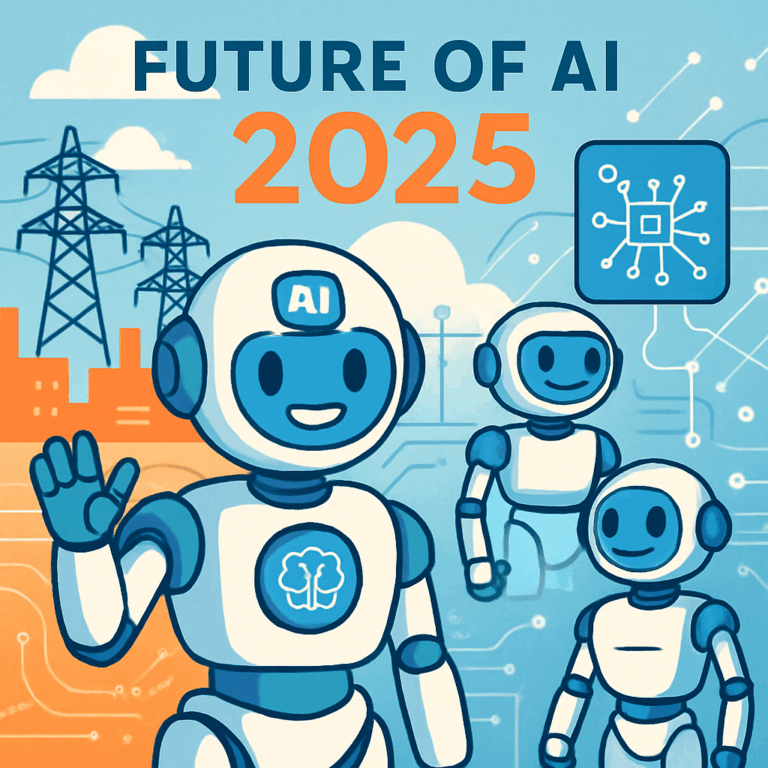
The second half of 2025 is set to be a defining period for artificial intelligence
The second half of 2025 is set to be a defining period for artificial intelligence, with the industry moving beyond the initial excitement of generative AI and entering a phase marked by autonomy, collaboration, and real-world impact. As AI matures, both opportunities and challenges are coming into sharper focus, shaping the trajectory of technology, business, and society.
The Era of Agentic AI and Multi-Agent Systems
One of the most significant shifts predicted for late 2025 is the rise of agentic AI—AI systems that can plan, reason, and act independently to achieve complex goals 1 2 3 4. Unlike the single-task chatbots and assistants of previous years, these new AI agents are capable of collaborating in multi-agent ecosystems. Imagine a digital workforce: one AI drafts a report, another verifies facts, a third polishes the tone, and a fourth translates the content for global audiences5. This collaborative intelligence is expected to revolutionize workflows in both creative and technical fields, making AI not just a tool, but a partner in productivity and innovation.
Generative AI: From Hype to Utility
While generative AI (Gen AI) remains a hotbed of innovation, experts predict a shift in focus from novelty to practical, high-value use cases 1 5 6. The so-called “Gen AI wars”—the competition among tech giants to dominate the AI landscape—are expected to cool, much like the browser wars of the late 1990s 1. Instead, businesses will look to integrate Gen AI into broader, more valuable ecosystems, using it to drive decision-making, automate routine tasks, and create new revenue streams. By the end of 2025, Gen AI will be deeply embedded in enterprise software, healthcare, finance, and even manufacturing, moving from experimental to essential 6 7.
AI Reasoning, Explainability, and Trust
A major leap for AI in 2025 is the democratization of reasoning—AI models will be able to tackle complex, multi-step problems with logic that closely mirrors human thought 1 8 9. This capability is especially valuable in fields like law, medicine, and scientific research, where nuanced analysis is crucial. Alongside this, explainability becomes a core requirement: organizations and regulators will demand that AI systems not only perform well but also provide transparent, understandable rationales for their decisions 1 8. This focus on trust and accountability is expected to drive innovation in AI governance, compliance, and security.
AI in Business: Talent, Productivity, and New Models
As AI becomes more capable, the line between software developers and data scientists will blur 1. Tools that once required advanced coding or statistical knowledge will be accessible to a broader workforce, accelerating digital transformation. Enterprises will increasingly rely on AI to augment human talent, automate repetitive processes, and unlock new business models 3 7. For example, AI agents will help companies customize and extend the life of existing software platforms, reducing the need for costly upgrades and shifting the focus to tailored solutions 7.
Autonomous Data Ecosystems and Self-Managing AI
Looking ahead, experts foresee the emergence of fully autonomous AI-driven data ecosystems 4. These systems will not only analyze and interpret data but also manage, clean, and optimize it in real time, with minimal human intervention. This self-managing capability will democratize data access, reduce engineering overhead, and enable businesses to make faster, more informed decisions. By 2026, self-healing data pipelines and predictive analytics are expected to be standard features in leading organizations 4.
AI Regulation, Security, and Societal Impact
With AI’s growing influence comes heightened scrutiny. The second half of 2025 will see increased regulatory attention, particularly around data privacy, intellectual property, and ethical use 6 8 7. As AI systems become more autonomous and integrated into critical infrastructure, ensuring their reliability, security, and fairness will be paramount. At the same time, the responsible use of AI in sensitive sectors like healthcare and finance will be a top priority, with organizations balancing innovation against the need for transparency and control 7.
The Consumer and Creative Revolution
For end users, AI will become more emotionally responsive, creative, and familiar 3 10. Advances in natural language processing, image generation, and voice synthesis will make AI interactions feel less robotic and more human. AI-powered personal assistants will handle everything from coding websites to composing music and moderating debates, making once-futuristic scenarios commonplace 5 10. Meanwhile, the monetization of open AI models—such as Meta’s move to charge for commercial use—will reshape the economics of AI development and access 10.
Conclusion
The second half of 2025 marks a turning point for artificial intelligence. The technology is maturing from a collection of impressive demos into a foundational layer for business, creativity, and daily life. The rise of agentic AI, multi-agent collaboration, and autonomous data ecosystems will redefine what’s possible, while new challenges in governance, security, and ethics will demand thoughtful solutions. As enterprises and individuals adapt, those who embrace AI’s potential—and its responsibilities—will lead the way into a new era of innovation and impact.




